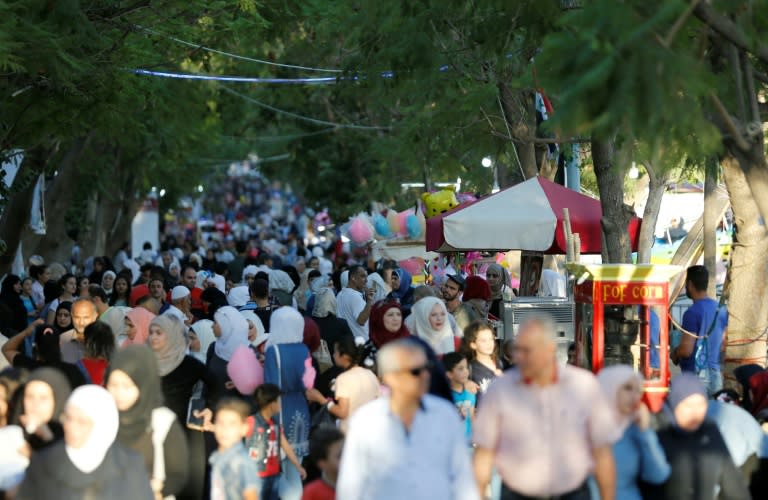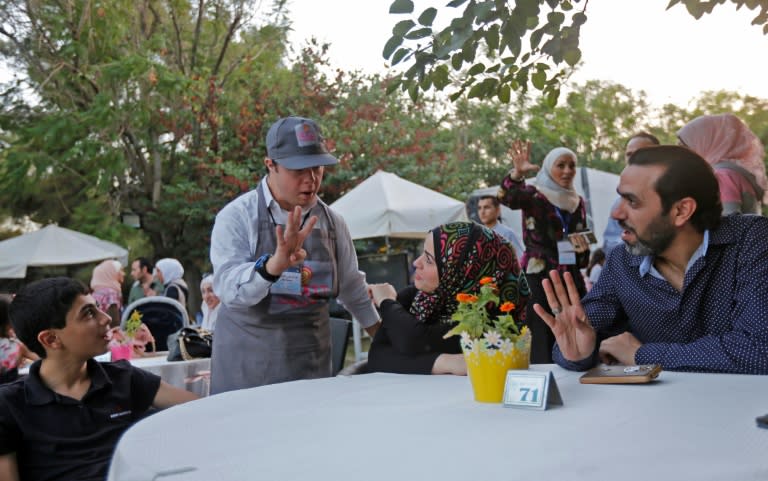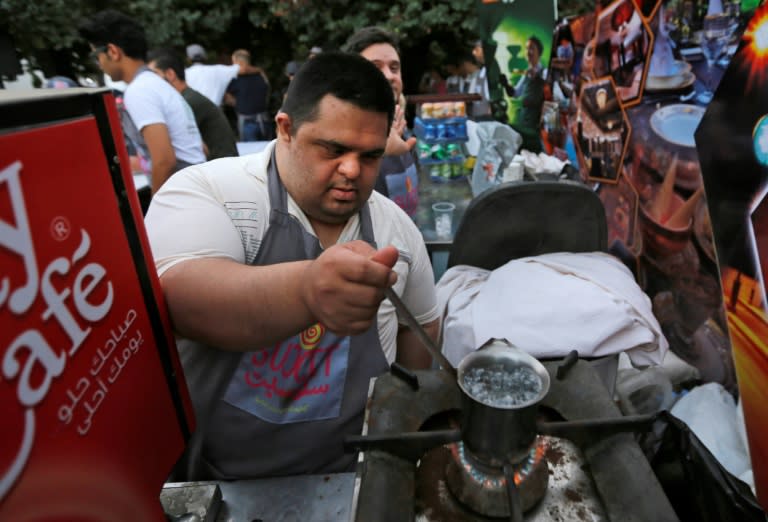Damascus park hosts first cafe with young disabled staff
In a Damascus park, 21-year-old Abdel Rahman shuttles between tables bringing customers drinks, delighted to be employed at Syria's first cafe staffed by young people with Down's Syndrome. "Of course, I'm super happy," says Abdel Rahman, who smiles constantly at patrons seated between the trees, dressed in a smart white shirt, grey apron and matching cap. All around in the capital's Tishreen park, families have gathered at tables draped in spotless white cloths and topped with bright flower pots. "Coffee, tea, juice," he tells AFP, listing drinks on offer at the Succet cafe, a unique initiative in war-torn Syria to help integrate marginalised youth with special needs. "It's the first time in my life that I'm working and making money," says Hazem, a plump 26-year-old who is in charge of making tea and coffee behind the bar. "I never want the coffee shop to close." Abdel Rahman and Hazem are among 16 young men and women with Down's Syndrome working shifts at the garden cafe, set up as part of a government-sponsored summer festival. But the Damascus governorate has committed to keeping the cafe open, even after the festival ends at the end of the month. "It's the first coffee shop of its kind in Syria," says Khulud Rajab, the head of an association that supports people with Down's Syndrome. "Our aim is to train these youth and to allow them to reach their potential, while encouraging their social integration," says Rajab, whose Juzour -- or "Roots" -- association runs the cafe. - 'Educate society' - Down's Syndrome is the most common genetic form of intellectual disability, and affects around one in 1,000 people worldwide, according to the World Health Organization. In Syria, public attention has turned to victims of the seven-year war, to the detriment of segments of the population with special needs. People with Down's Syndrome are "one of the most vulnerable categories, as well as one of the most marginalised", Rajab says. For now, the cafe is raising awareness among visitors to the park. These young people "teach us a lesson in persistence", says Ahmad Qatrib, an actor with slicked-back black hair and a salt-and-pepper beard seated at one of the tables. "We need to understand they can be active in society." In Syria, like in many Arab countries, families of those with Down's Syndrome fear the stigma associated with the condition, while initiatives to support them are few and far between. "The toughest thing is getting society to accept them," says Shehrazad Qunnu, who works for a charity involved in the issue. By waiting on tables in the park, Abdel Rahman has made his father Ghassan Buri extremely proud. For eight years, Buri has been bent on developing his son's skills, encouraging him to pick up music, drawing and sports, says the bespeckled 66-year-old, with white hair and a neatly trimmed moustache. But his son also has qualities many do not, he says. "We'll be in the street and someone will throw a bottle on the ground, and my son will run after him to ask him to pick it up," he says. "It's such a shame that children with Down's Syndrome stay at home," he says. "We need to educate society."





